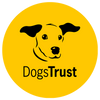Your dog will need a healthy and balanced diet to keep him well and happy. How and what you feed your dog depends on three important factors.

- the type of breed
- how old your dog is
- whether your dog has a medical condition
- Proteins–for healthy muscles, skin and coat, as well as the immune system (beef, lamb, chicken, egg and fish)
- Carbohydrates – for energy and fibre which helps digestion (barley, sugar beet pulp, rice bran, maize and sorghum
- Fats and Oils – for energy and healthy skin and coat (animal fat, fish oils, essential fatty acids omega-3 and omega-6, linseed oil, sunflower oil, vegetable oil, corn oil and fish meal)
- Minerals – for strong teeth and bones and (calcium, phosphorus, zinc, copper, iron, sodium, chloride, magnesium and potassium)
- Vitamins – for healthy skin and coat, to maintain growth and normal vision (Vitamins A, B, C, D3, E, K)
- Water - the most essential nutrient of all and you should always make sure your dog has clean, fresh drinking water at all times We recommend that you feed your dog a diet of only dry dog food, unless they refuse to eat it, in which case, try wet food. If you are changing brand or type of dog food, introduce it slowly, mixed with the food they are used to, and phase out the old with the new.
Visit our Dog Food section for a wide variety of dog foods
Consider your dog breed before choosing a food!
Size and shape is a huge factor
Dogs vary greatly in size and shape with vastly different characters and nutritional needs. Breeds can be classed as Small (including Toy breeds), Medium, Large or Giant, depending on your dog's weight and height. Basically Small breeds range from 2.5 – 10kg, Medium breeds from 11 – 25kg and Large breeds from 26 –45kg and Giant breeds from over 45kg.
Small dogs need nearly twice as much energy for their size as large breeds. A little Pomeranian needs to eat twice as many calories per pound of weight every day than a Great Dane! Active and Working Dog breeds often need more calories and a dog with a heavy work load will require an extra 50%. If your dog spends most of their time outside, they will also need more calories as the temperature gets lower.
Breed specific dog foods
Some pet food companies have designed dog foods for different breeds targeting their specific needs and problems. For example, dogs who have shortened snouts, like Pugs, Boxers, Pekinese and Shih Tzu's find it difficult to pick up kibbles or dog biscuits, so foods have been specially developed for them. Specialised foods for dogs such as Dachshunds have added supplements of calcium and phosphorus to support their bones and joints.
Foods that have been customised specifically for a breed can aid a number of ailments from digestive problems, like bloat in Rottweilers, to heart conditions and bone disease in German Shepherds.
Visit our Dog Products section for a large choice of breed specific dog foods

Is your dog a small breed?
The Cavalier King Charles Spaniel, Chihuahua and Yorkshire Terrier are all classified as small breeds of dog. They tend to have a fast metabolism and need foods that are high in protein, rich in fats and carbohydrates, to give them that extra energy boost. Foods should also come in smaller kibble sizes to suit smaller mouths as well as to encourage chewing and improve digestion.
Is your dog a medium or large breed?
Medium and Large breeds of dog can range from the Golden Retriever to the Old English Sheepdog. The bigger the dog the bigger the appetite! Large dogs also have a tendency to bolt their food down without chewing properly and to put on weight so it is important that they are fed a diet that has reduced fat, concentrated protein and large sized kibbles to encourage them to chew for longer.
Up to 40% of large dogs develop joint problems and dog foods have been designed with supplements to help promote healthy joints and mobility.
Is your dog a giant breed?
Giant breed dogs include the Great Dane, Mastiff and Irish Wolfhound. These dogs have slower metabolisms than their smaller cousins, so they require fewer calories and less fat from their food. Giant dogs are prone to weight gain and this can put a strain on their joints and vital organs. Some giant dogs are particularly susceptible to bloat - which can be fatal – and Aerophagia (swallowing too much air).
Great Danes can suffer from a serious condition called Gastric Dilatation-Volvulus (GDV) which is partially caused by too much food in the stomach, so a very high calorie diet has been designed to reduce the volume the dog needs to eat. Breed specific dog foods for Giant breeds also have larger sized kibbles to satisfy their appetites and discourage them from devouring their food too quickly.
Giant breed dog foods are available that have been designed to develop and support their large, strong skeletal frame and powerful joints as well as keep them trim.
Age appropriate food

The 3 stages of life: Puppy, Adult and Senior
Your dog's age affects what food you need to select for them. Puppies burn three times more calories a day than adult dogs and need foods to give them a healthy start that will last a lifetime. Puppy foods contain nutrients to help them develop their immune systems, bones and muscles. Adult dogs require foods to help them stay in good condition and as dogs reach their later years, maintaining healthy weight, joints and digestion all become important issues. Senior dogs need fewer calories in their diets as they are not as energetic but they do need easily digestible protein to stay healthy and happy.
Many breeds of dog also age at different rates. Small breeds tend to live longer but age faster; Large breeds have shorter life spans but mature slowly. Below is a table showing their growth phases.
What should I feed my puppy? (6/8 weeks – 1 year)
You shouldn't feed Puppies adult dog food as they need special food to help them grow and develop. Puppies are also prone to tummy upsets and puppy foods are designed to provide a good diet that doesn't give them diarrhoea.
What should I feed my adult dog? (1 - 7 years)
Adult dogs need to be fed a balanced diet to stay in good condition. To stay healthy they need the right balance of proteins, fats and oils, minerals, vitamins, carbohydrates and water and a good adult dog food will contain all of these. Your dog will soon decide whether they prefer wet or dry food or a combination of the two but don't forget that different breeds of dogs may need different amounts of food to stay in shape.
What should I feed my senior dog? (over 7 years)
Senior dogs need a diet that will keep them active and healthy throughout their later years and the usual adult dog foods don't contain the nutrients they need. It's best to choose a dog food made especially for older dogs to keep them well and happy.
Older dogs need fewer calories as they are not as energetic as they used to be. Senior dog foods are made to be easily digestible and contain minerals to support ageing joints as well as fatty acids to prevent dry skin. They also have smaller kibbles which are easier to chew, especially if your dog is losing its teeth.
Does your dog have health/medical conditions?
Does your dog have allergies?
Many dogs suffer from food intolerance, loose digestion and skin irritations which can make their lives a misery and are distressing for their owners. About 10% of all allergies in dogs are related to food and it is usually the protein source of a food which is to blame for an allergy.
Common allergies in sensitive dogs are caused by beef, dairy products, chicken, wheat, chicken eggs, corn and soy. You can help relieve your dog's symptoms by choosing hypo-allergenic foods for 'Sensitive' dogs which are made without these irritants and don't contain artificial colours, flavours or preservatives.

Is your dog overweight?
Obesity in dogs is on the increase, with a third of dogs in the UK & Ireland being classed as overweight. Large breeds and older, less active dogs are particularly prone to piling on the pounds, with overweight dogs more likely to develop diabetes, heart and respiratory problems and arthritis. If your dog becomes overweight it's best to consult your vet and there are 'Light' dog foods available which can also help. These are lower in fat but contain all the vitamins and minerals your dog needs, so you can reduce the amount of calories without cutting down on portion size or nutrients.
Cut down on treats and tit bits as giving any extras in addition to your dog's food ration will spoil what you are trying to achieve in dieting your dog. Increase your dog's exercise slowly to help burn off the calories and split your dog's food into at least 2 smaller meals a day to increase their metabolism.
Is your bitch pregnant?
Good, balanced nutrition is vital during pregnancy as all pregnant and nursing bitches need an extra boost of protein and energy to help them. A bitch will need extra nutrients starting as early as the 6th week of gestation. Nursing leads to an even greater demand on intakes due to the quantities of nutrient-rich milk needed to feed the puppies.
Adult dog food simply won't provide all the nutrients required and only a specific diet will allow her to meet all of her needs. Some specialist dog food manufacturers make formulated diets designed with pregnancy in mind and this should be fed until the puppies have been weaned.
Does your dog have a medical condition?
If your dog has a medical condition such as diabetes, liver, heart, bladder or kidney problems you should seek veterinary advice about prescription diets available for your dog. Pet foods bought in shops are not suitable for dogs with such conditions.
Visit our Products section for a choice of teething toys and doggy toothpastes

Dangerous foods for your dog
Some everyday foods in your home can be toxic or fatal to your dog when eaten. Here is a list to help you keep your pet safe.
- Onions – can cause a form of anaemia that leads to the destruction of red blood cells. Chives and garlic are also dangerous foods for dogs.
- Chocolate – chocolate is toxic to dogs. Baking chocolate and cocoa are also dangerous foods for dogs.
- Coffee and Tea– caffeine is toxic to dogs.
- Xylitol - xylitol is a sugar-free sweetener most often found in chewing gum and sweets. It is toxic to dogs and can cause hypoglycaemia (low blood sugar) and severe liver damage.
- Raisins and Grapes - Grapes and Raisins can cause irreversible damage to the kidneys and can be fatal.
- Macadamia nuts - can cause your dog to experience severe illness.
- Alcohol - alcohol is toxic to dogs.
- Fruit and seeds - Apple seeds, cherry pits, peach pits, and plum pits contain the toxin cyanide which is poisonous. Avocados contain Persin, which can cause vomiting and diarrhoea in dogs.
- Small poultry bones (chicken etc.) – splinter easily and are a choking hazard






